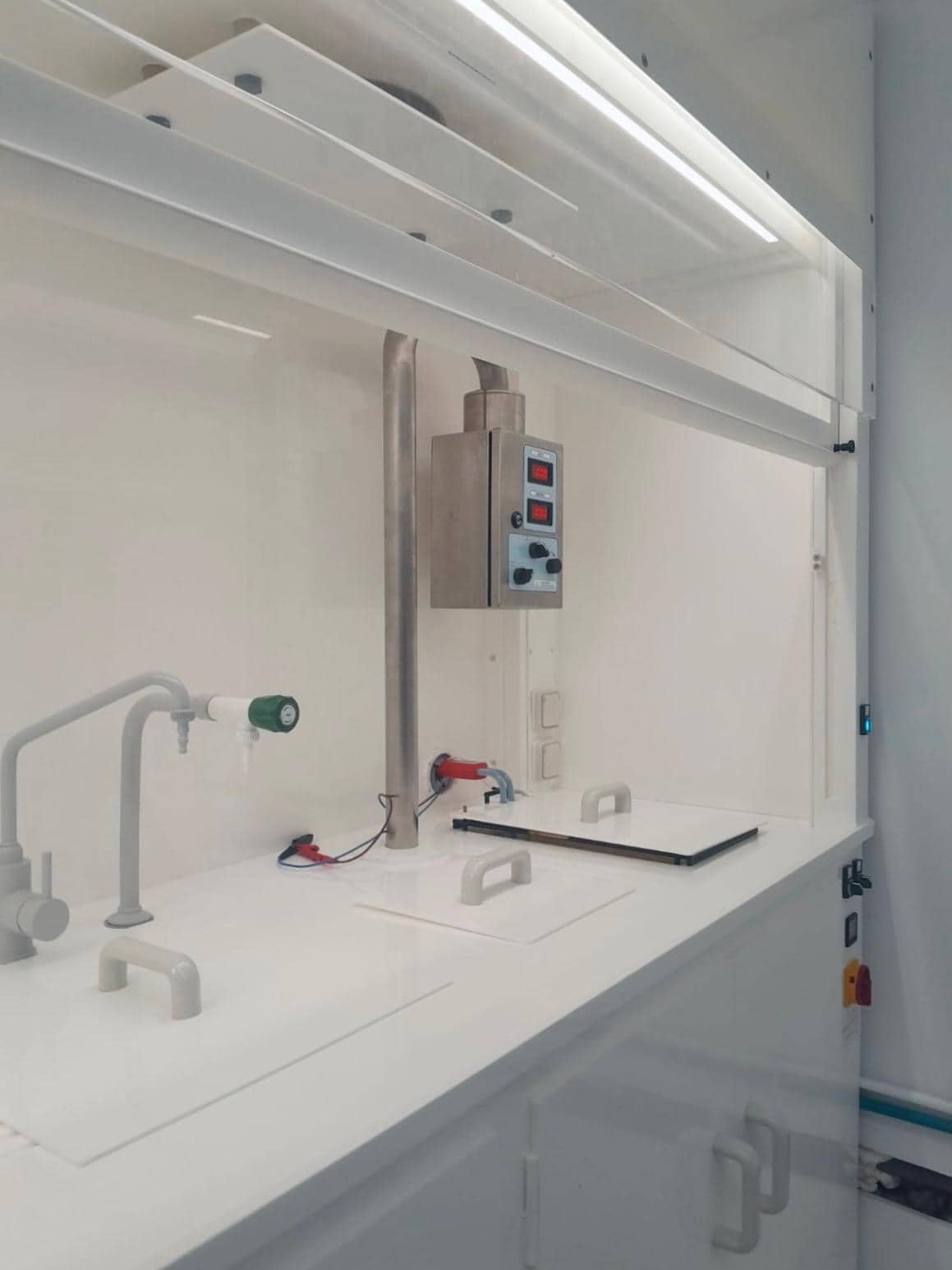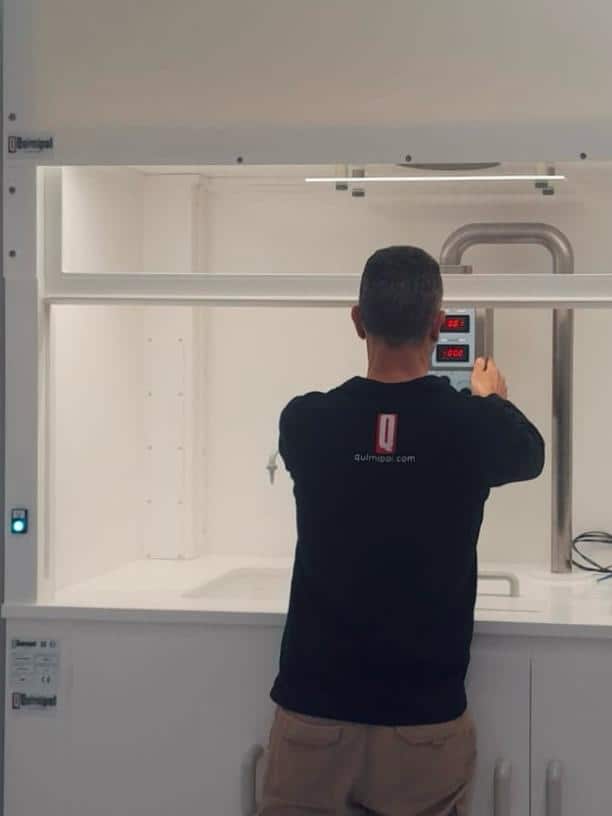Anodizing benches are modular workstations designed to perform surface treatments on metal parts.
They are used both in laboratories and in industrial environments and allow processes such as anodizing, galvanizing, electropolishing, passivating or ceramic coatings.
In this article we explain what an anodizing bench is, how it works and in which sectors it is applied, especially in the manufacture of dental implants and high-precision components.
What is an anodizing bench?
An anodizing bench is a set of chemical cuvettes equipped with resistors, stirring systems, and in some cases, full automation. Its main function is to modify the surface of metal parts to improve their resistance, biocompatibility or aesthetic finish.
These chemical treatment plants are custom-designed and adapted to the type of process, production volume and materials treated.
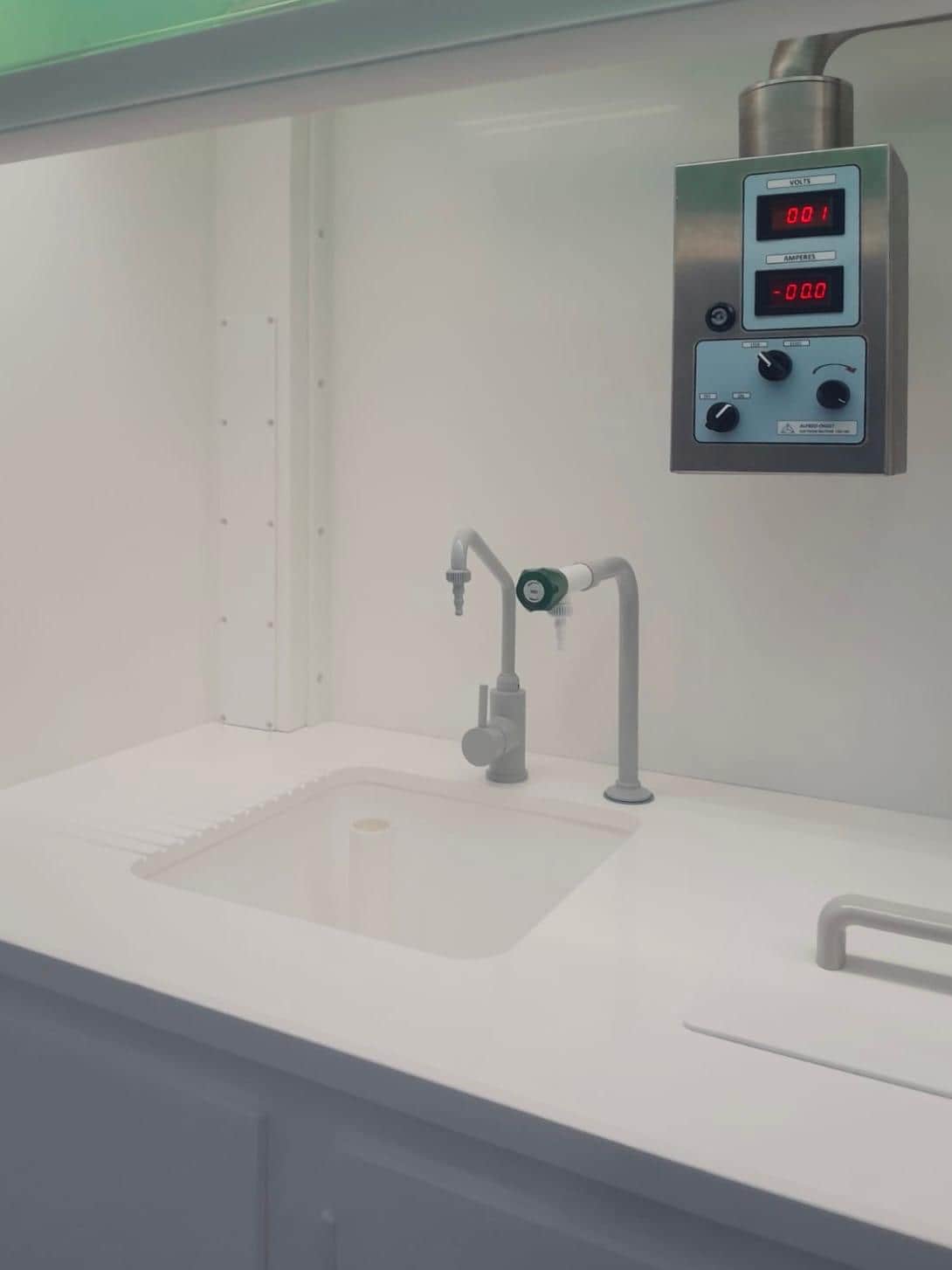
⚙️ Technical characteristics of an anodizing bench
Common materials and components
- Chemical trays: Made of polypropylene, PTFE, borosilicate glass or stainless steel, depending on the aggressiveness of the bath.
- Resistors: Immersion or external heating, with digital control to maintain precise temperatures (±1 °C).
- Agitation: Magnetic, mechanical or ultrasonic systems to homogenize solutions or clean parts.
- Current sources: DC rectifiers for electrochemical processes such as anodizing or electropolishing.
- Safety: Gas extractors, emergency showers and anti-corrosion materials.
- Automation: Cycle programming, temperature, pH, or conductivity sensors.
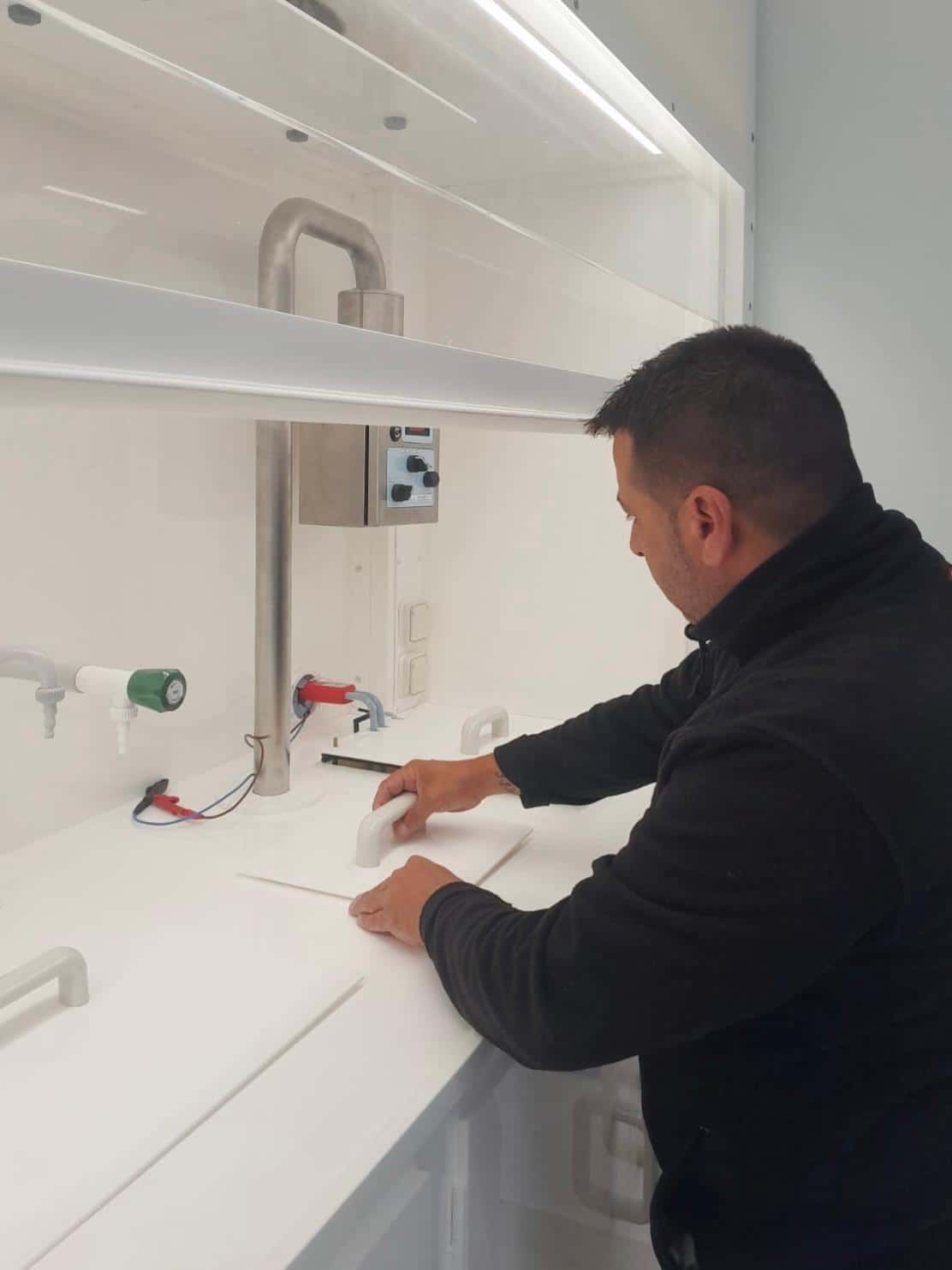
️ Processes that an anodizing bench enables
- Anodizing aluminum or titanium
It generates a controlled oxide layer to protect the part and improve its biocompatibility.
Used in dental implants, aeronautical or electronic parts.
- Galvanized
Coat the piece with metals such as zinc, nickel, or chromium to increase its strength and aesthetics.
- Electropolishing
Electrochemical polishing to obtain smooth, shiny surfaces with less roughness.
- Chemical cleaning and pickling
Removes rusts, greases or contaminants before other treatments.
- Passivation
It forms a protective layer on stainless steels or alloys to improve their resistance to corrosion.
- Ceramic coatings
Application of alumina or zirconium layers for parts that require aesthetics, hardness or chemical resistance.
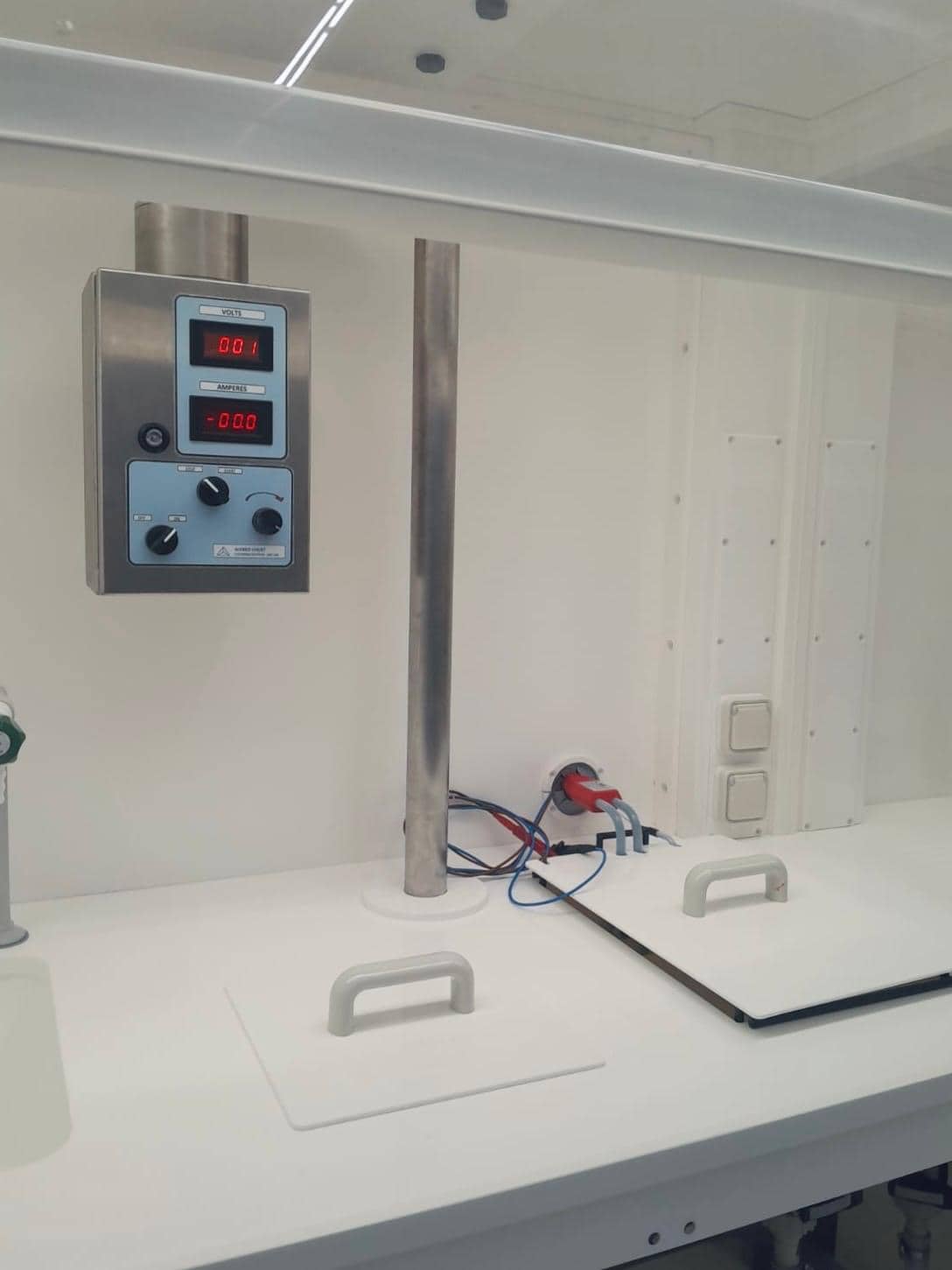
Application in dental implants
In the dental sector, chemical benches allow you to treat implant surfaces made of titanium, cobalt-chromium or stainless steel to ensure:
- Biocompatibility
- Corrosion resistance
- Aesthetic finish
- Ease of osseointegration
Specific processes:
- Ultrasonic cleaning: Frequencies of 20–40 kHz to remove residue without damagingthe part.
- Titanium anodizing: Improves bone integration and allows colored finishes.
- Electropolishing: Smooths the surface and reduces bacterial adhesion.
- Passivation: Increases resistance in oral environments.
- Ceramic coatings: Aesthetics and functionality in prostheses and crowns.
Materials Treated
Anodizing benches allow you to work with various metals, including:
| Material | Typical Application | Treatments |
| Titanium | Dental implants, medical devices | Anodized, electropolished |
| Cobalt-chromium | Prostheses, implant connections | Electropolishing |
| Stainless steel | Surgical tools, dental structures | Passivation |
| Copper Alloys | Components with antibacterial properties | Cleaning, coatings |
| Gold and platinum | Sensors, electronic connectors | Fine galvanizing |
Configuring a custom anodizing bench
Each bench is designed according to the process, production volume, type of part and level of automation required.
Configuration example
- Buckets: From 1 to 100 liters; from 4 to 12 buckets per bench.
- Resistors: Immersion or external, with digital thermostat.
- Agitation: Magnetic, mechanical or ultrasonic, depending on the viscosity of the liquid.
- Current sources: 1–5 A/dm² for electrochemical processes.
- Control and automation: Integrated sensors and control software to ensure process repeatability.
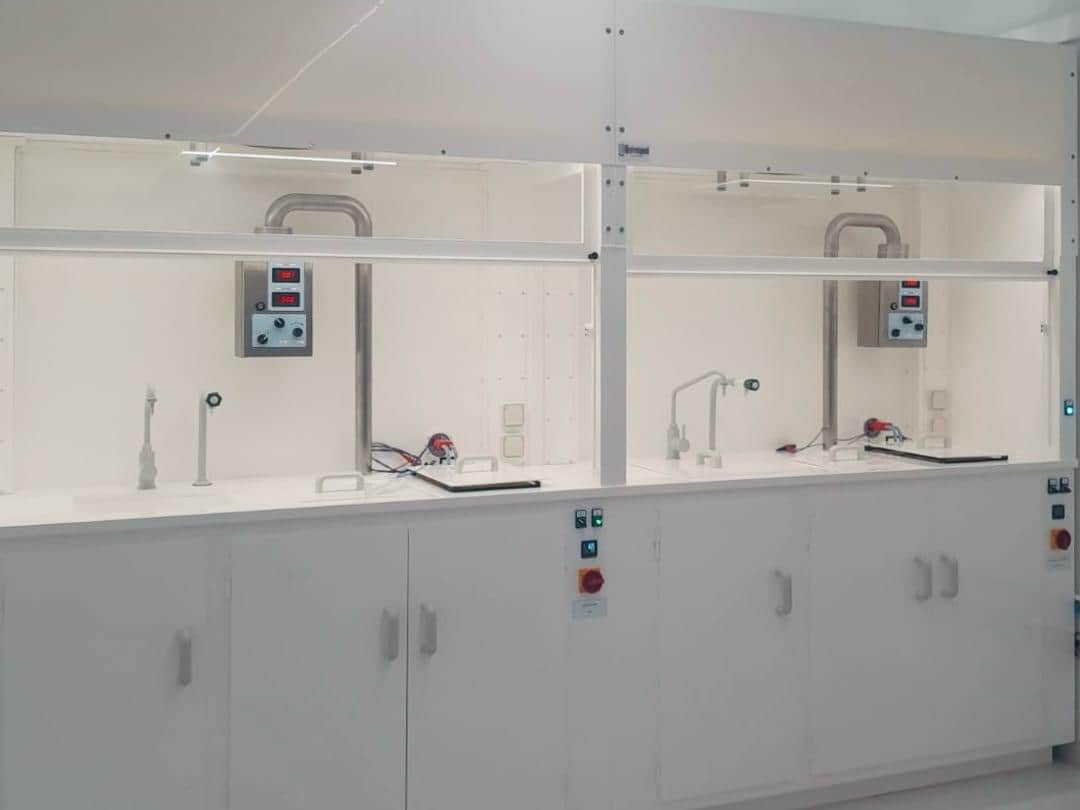
✅ Advantages of a Quimipol anodizing bench
- 100% tailor-made design, adapted to your processes.
- Resistant and durable materials, to work with acids and alkalis.
- Advanced automation: control times, temperatures, agitation and safety.
- Designed for demanding environments such as dentistry, aeronautics or the electronics industry.
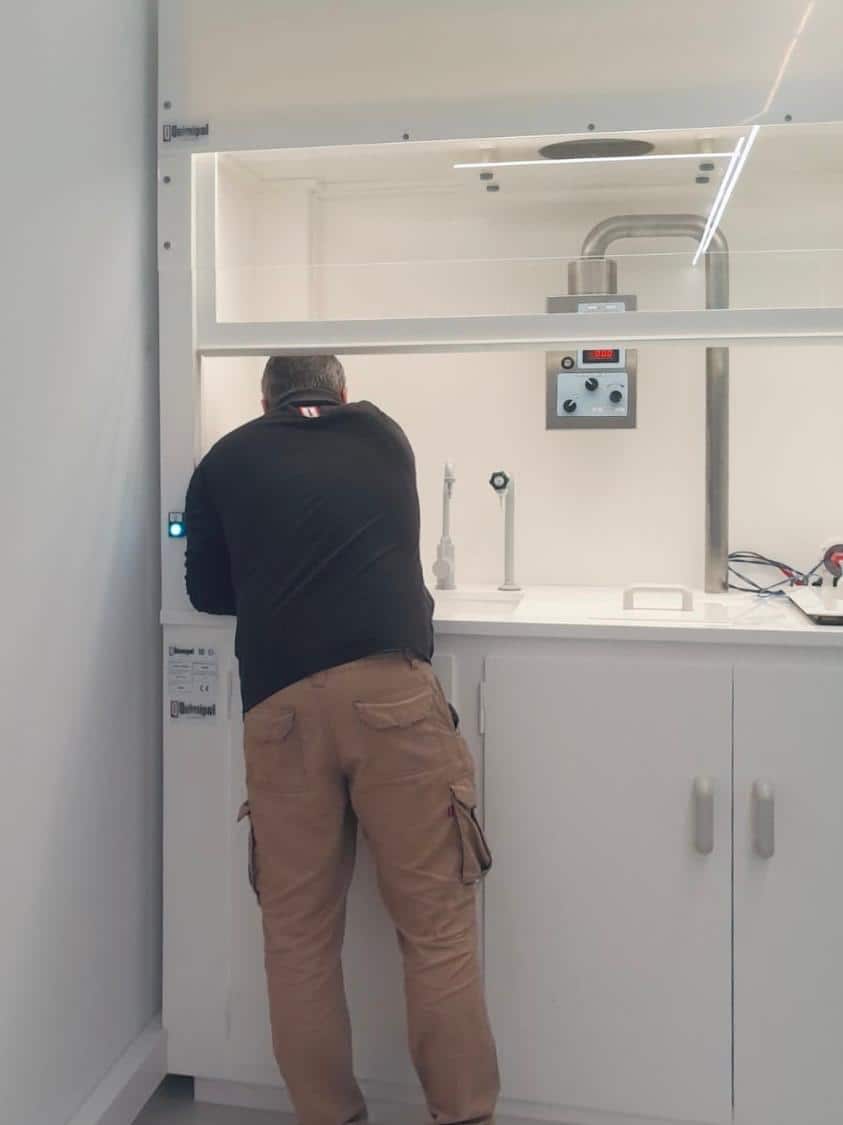
Want to know more?
At Quimipol we design and manufacture custom anodizing benches.
Contact us and we will help you set up the ideal bench for your processes.
Contact us
———————————–
About the Author
Sergi Vinuesa – Sales Manager at Quimipol

